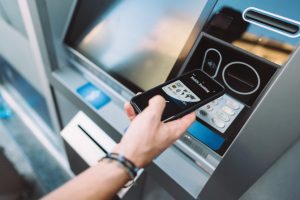In its early days, Buy Now, Pay Later (BNPL) — or installment payments — started as a subset of consumers searching for more ways to budget and improve finances, but it was rapidly adopted across the board. BNPL quickly became a mainstream payment offering, and today, it is practically ubiquitous: virtually every large and midsize merchant in developed economies has considered, is in the process of launching or has already launched a BNPL solution.
Today’s BNPL Market
One surprising — but generally positive — outcome of the COVID-19 pandemic’s effects on the U.S. economy was BNPL lending’s rise to stardom. Fast forward to the present, and according to Mercator Advisory Group, more than 50% of U.S. consumers have used a BNPL option in the past 12 to 14 months. And according to the 2021 Primax Payments Pulse, 22% of respondents indicated they would be likely or extremely likely to use a BNPL option if available through their bank. Aite-Novarica’s October 2021 Buy Now, Pay Later Market Overview Report notes that installment solutions offered by seven of the leading BNPL vendors currently serve more than 800,000 merchants and over 100 million consumers.
The benefits of BNPL are evident, making it clear why the offering quickly rose to popularity. BNPL offerings allow consumers to play a more active role in managing their financial lives, and they are easy to use and convenient.
The benefits of BNPL are evident, making it clear why the offering quickly rose to popularity. BNPL offerings allow consumers to play a more active role in managing their financial lives, and they are easy to use and convenient. According to Aite-Novarica, BNPL vendors indicate their merchants see conversion rates improve by 20% to 30%, as offering installment options helps shoppers see a purchase as more affordable, resulting in lower cart abandonment rates. In addition, merchants report experiencing higher basket sizes, with average order value increasing by 40% or more after adding BNPL to their checkouts. Merchant partners also see up to 55% of BNPL users making repeat purchases.
Per Aite-Novarica, BNPL retail e-commerce volume was approximately $500 billion in 2020, up 28% from 2019. At the end of 2020, BNPL spending in retail e-commerce was projected to grow to more than $1.2 trillion by 2024, a 25% compound annual growth rate (CAGR). In actuality, total BNPL spend by that point is likely to be even higher than originally projected when considering the recent expansion of BNPL offerings, which includes the physical point of sale (POS), Square’s acquisition of Afterpay, PayPal’s entry into BNPL in late 2020, Amazon’s partnership with Affirm and the proliferation of BNPL providers targeting non-retail verticals.
Recommendations for Banks and Financial Institutions
As online purchases continue to grow exponentially, consumers are beginning to appreciate — and in some cases come to expect — the ease of use associated with BNPL. Demand for this convenient payment option has grown tremendously and is expected to increase.
With that in mind, the BNPL market is a space worth considering for community banks when it comes to growing portfolios, attracting new account holders and creating more solution offerings. The call to action was clear in a recent PYMNTS.com survey released last month, where three-quarters of consumers who use BNPL from the top three providers were interested in switching to a financial-issued plan.
Banks and financial institutions should create a plan to best approach implementing a BNPL offering. First, choose and develop your installment plan through a BNPL vendor. Options include pre-purchase (consumer opts-in for installments prior to making the purchase), at-purchase (consumer is prompted at merchant checkout to pay with installments) or post-purchase (consumer converts a recent credit card purchase into installments). For a financial institution’s first BNPL offering, pre-purchase or post-purchase are recommended. Card issuers have more flexibility with these plans based on cardholder history, existing credit lines and regular cardholder interactions.
Once your plan is in progress, consider the following steps:
- Promote: Execute promotional activities to position your institution’s debit or credit card as the card of choice among customers interested in setting up installment plans. This will continue to drive interchange revenue, deposit balances and brand visibility for your institution.
- Partner: Facilitate partnerships between your merchant account holders and BNPL providers. For merchants, the best way to drive loyalty is to help them optimize their businesses, and installment payment options are well on their way to becoming a necessity for businesses everywhere. Consider partnering with a trusted BNPL provider and leveraging their analytics to meet account holders where they are in their financial journeys. Remember that consumers expect a digital-first experience, so any product launch should be embedded in this journey.
- Educate: Take the opportunity to educate account holders about BNPL offerings and why solutions like this can benefit their overall financial wellness, providing them with an additional budgeting tool to better manage their finances.
The future of BNPL is only going to grow from here, so now is the time for financial institutions to begin planning for and launching these offerings to customers in order to continue growing and succeeding in the current financial services market.
Cody Banks leads Primax’s payments, fraud, loyalty & contact center product teams. In his role, Cody focuses on developing and delivering safe, easy and convenient payments experiences for the company’s financial institutions. Prior to joining Primax in 2017, Banks spent nearly 10 years in the credit union industry navigating complex initiatives with a focus on journey mapping of the cardholder experience.










